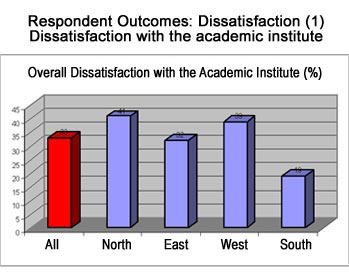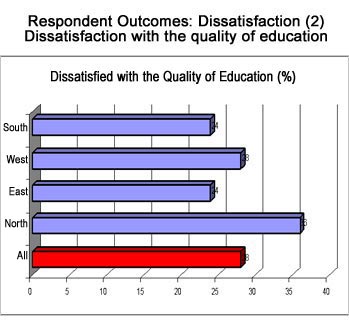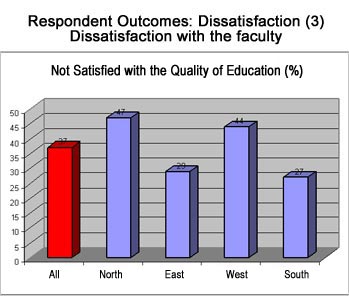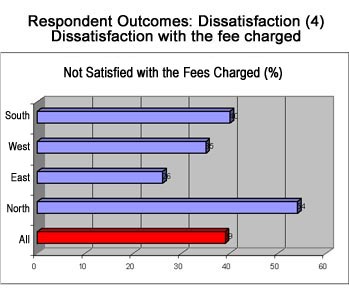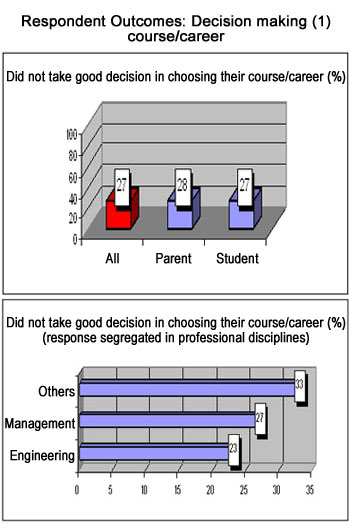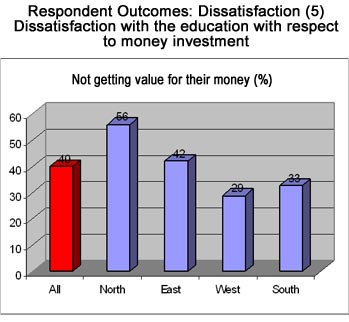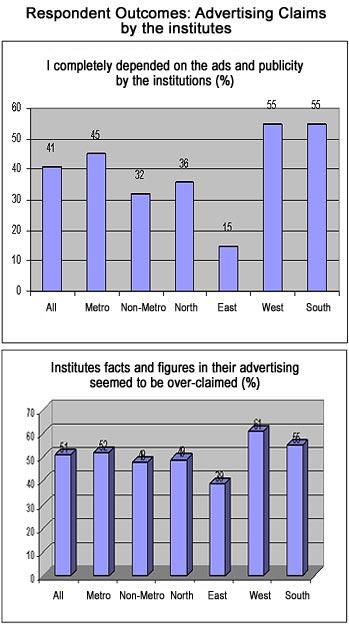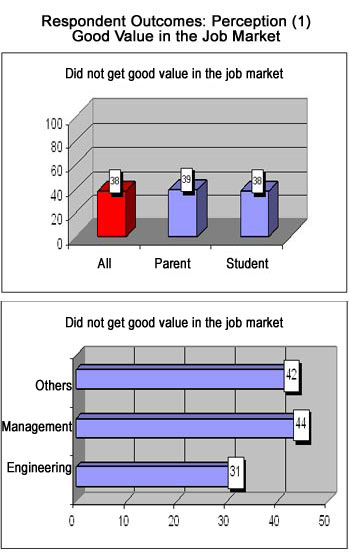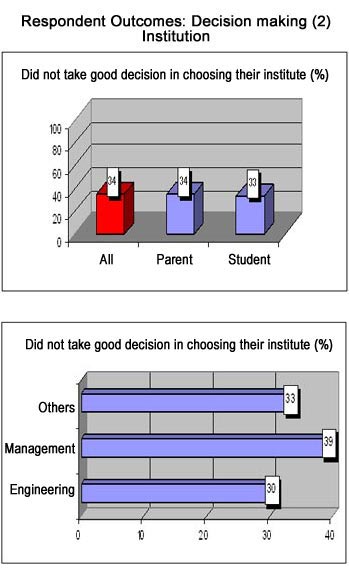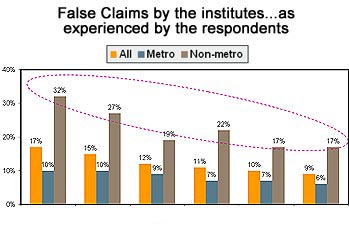 | « Back to article | Print this article |
Study: Over 30% of students dissatisfied with course
- One-third of Indian students are not satisfied with the education they get
- 41 per cent admit they completely depend on the adverts by the institutes to decide on the course/campus
- 51 per cent think the claims made in the ads are overstated
These are some of the findings by a first-ever customer satisfaction survey done by Careers360 in association with GfK Mode. The survey examined three aspects of the education experience -- institute selection, factors that govern selection, and satisfaction from different aspects of an educational experience and actions they took in case of lacuna in service.
Careers360, is a complete career magazine
27% respondents did not take a good decision in choosing their career
About 27 per cent of the respondents think they did not take a good decision in choosing their career and course. But the level of dissatisfaction increases to 33 per cent when it comes to the decision on selection of an institute. And finally nearly 38 per cent of those surveyed claim that they did not get great value for money for their courses.
44% MBAs were not convinced their course delivers enough bang for the buck
When it comes to discipline-wise satisfaction levels, management tops the list with nearly 39 per cent expressing dissatisfaction with the institute, but as a course only 27 per cent are unhappy with an MBA, even though a whopping 44 per cent who opted for a management degree were not convinced it delivers enough bang for the buck.
23% engineers are unhappy with a BTech
On the other hand, engineering fared better. Only about 23 per cent are unhappy with a BTech and just over 30 per cent claim to be unhappy with the value for money proposition.
51% say advertisement claims by institutes are overstated
About 45 per cent decide on the course/institute on the basis of the advertisements institutes issue. A whopping 73 per cent contend that they do rely on the rankings of various publications. Interestingly, about 51 per cent say claims of the advertisements by institutes are overstated, always.
40% of all surveyed not fully satisfied with the value they get from their education
Value for money tops the list of dissatisfiers. About 40 per cent of all surveyed claim they are not fully satisfied with the value they get from their profession education. Infrastructure is another perpetual concern, with 40 per cent expressing strong reservations about the claims here, especially academic infrastructure.
Fees and faculty are pet peeves
And the fee charges come a close second with 39 per cent. Faculty is a pet peeve with nearly 37 per cent being dissatisfied.
Collaborations, recognition less worrying
Overall levels of dissatisfaction with the institute are at 33 per cent and the level of dissatisfaction with the quality of education imparted is at 27 per cent. Foreign collaborations, visits aboard, recognition are other minor peeves with levels of dissatisfaction hovering around the 20s.
29% complained to the institute seeking redressal
Most of those dissatisfied did nothing. About 49 per cent accepted they did nothing. Around 29 per cent tried complaining to the institute seeking redressal. Another 13 per cent did try some form of collective protest.
Technical education suffers
The state of technical education in the country is not at all rosy. Nearly one-third of those who pay and study being dissatisfied for one reason or the other does not augur well for the wellbeing of the system as well as the future of the student population.
